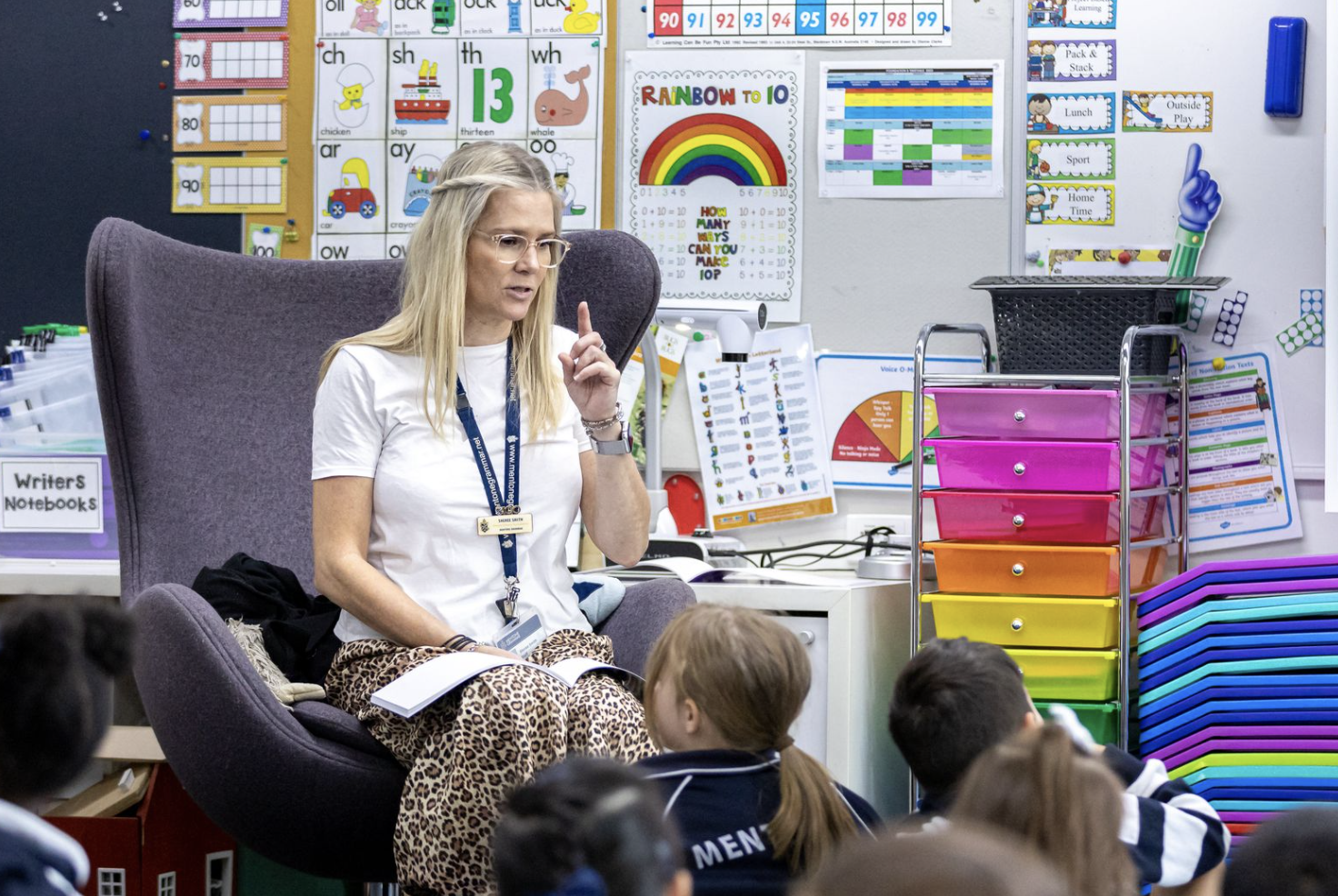
Phonics: A sound foundation for literacy success
Earlier this year, the Victorian Government announced that systematic synthetic phonics (SSP) would become a mandatory teaching method in all primary schools starting in 2025. This decision aligns with the latest research into early literacy education and emphasises the explicit teaching of letter-sound relationships (phonics) from Foundation to Year 2 for a minimum of 25 minutes each day.
In February 2024, the Grattan Institute released a report titled, ‘The Reading Guarantee’. Within this report, the Institute highlighted the need for ‘a strong focus on phonics-based decoding skills in the early years.’
SSP is a structured and evidence-based method that teaches children to read by focusing on the sounds (phonemes) that letters and letter combinations represent (graphemes). The process begins with phonological awareness, where children learn to recognise and manipulate sounds in spoken language before introducing letters. This includes activities like identifying rhymes and counting syllables, which are essential for developing reading and writing skills. In English, the 26 letters of the alphabet are represented by 44 distinct sounds (phonemes) which can be represented by an individual letter (graph) or combinations of letters (mostly digraphs, trigraphs).
The shift towards this method aligns with global research showing that explicit phonics instruction is highly effective, particularly for young learners. Mentone Grammar has been successfully integrating elements of this approach for many years now, reaping its benefits through teacher instruction, interactive activities, literacy games, and reading programs that actively engage children in the learning process.
Students in the early years in Eblana use decodable texts for reading instruction and take-home books. We have moved away from the use of just ‘predictable texts’ which can promote ‘guessing’ rather than ‘decoding’ of unknown words when reading. Students are taught spelling using the SMART Spelling program from Foundation to Year 4. This program focuses on the relationship between letters and sounds, with an explicit and intensive element of the program delivered in Foundation. Teachers also use the Heggerty Phonemic Awareness program which provides structured explicit and systematic phonological and phonemic awareness lessons that are completed as a whole class daily. Throughout Literacy lessons, teachers continue to draw students’ attention to the connections between letters and sounds and the importance phonics knowledge plays in all aspects of their learning.
Specialist Learning Enhancement staff use a variety of programs such as MiniLit, MacLit and SpellEx throughout their intervention classes with Eblana students. They work alongside classroom teachers to assist students requiring further consolidation of skills.
The introduction of systematic phonics at an early age provides a solid foundation for all future learning. Phonics is crucial because it helps children develop systematic decoding (sounding out) and encoding (spelling out) skills that ensure that even the most complex words can be broken down and understood, preventing students from falling behind in literacy.
Phonics learning continues to be beneficial beyond the early years of schooling, particularly as students move into more advanced literacy tasks in secondary school. As reading demands increase in later schooling, students must decode more complex and unfamiliar words, especially in subjects like science, history, and literature. Strong phonics skills enable students to break down multisyllabic words into manageable parts, improving both reading fluency and comprehension. Moreover, phonics helps with spelling accuracy and vocabulary development, which are critical as students progress into the senior years where written assessments play a significant role.
As we continue to embrace this significant shift towards the SSP approach, we look forward to seeing the positive impact on our students’ literacy journey.
Sheree Smith
Eblana Literacy Coordinator